Burundi is a small, heart-shaped country located at the center of the African Continent. Due to long-term political insecurity and severe poverty, 74.7% of its population is living under the poverty line and 56% is suffering from chronic malnutrition. The distribution rate of water and sanitary facility is very low and less than 5% of the population has access to electricity. (Source: The World Bank)
Many Burundians are leaving their country, fearing for their lives and livelihood. However, there is an activist who decided to stay and work for the self-reliance of local Burundians. Let us introduce Staney, a staff member of HUMAN IN LOVE Branch and his Kigereka smart farm and Banguka cooperative union.
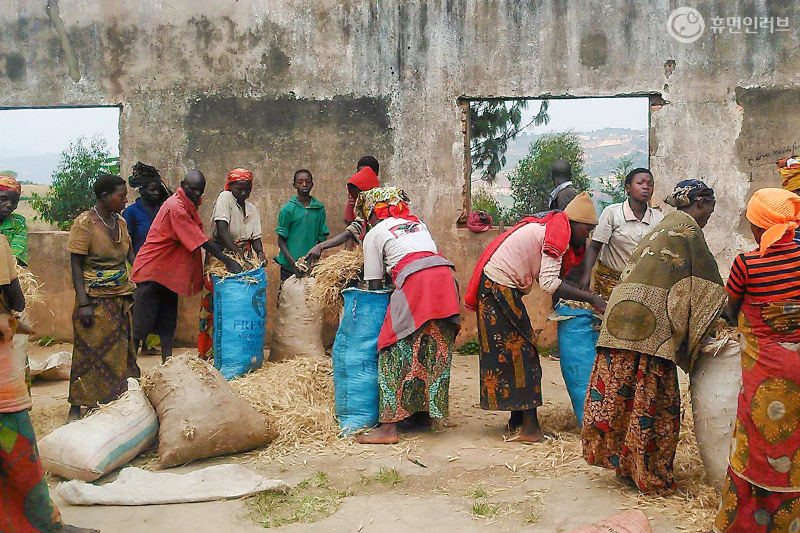
[ Banguka cooperative union members are putting the wheat that they harvested into bags. ]
Why did you start running the farm?
Staney: As a member of HIL Burundi Branch, I’ve been supported by HUMAN IN LOVE to help local residents. However, as Burundi is isolating itself from the international community, things were getting tough for international organizations and NGOs running in this country. For a long time, I’ve fully understood the importance of the workplace where local residents can work without external support and the importance of strengthening the role of local community. This is why I started running the farm three years ago.
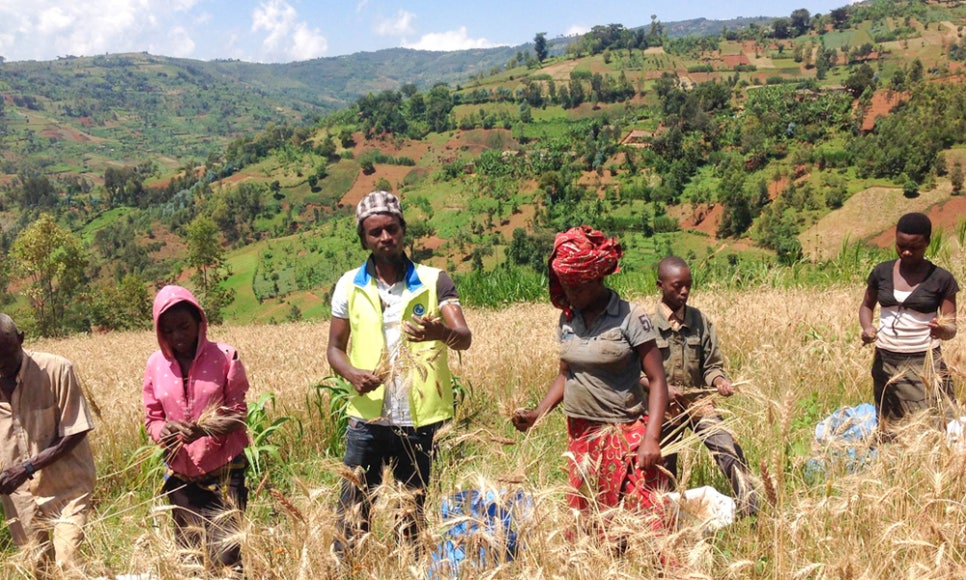
[ Staney (fourth from the right) is harvesting wheat with local residents. ]
Why did you start running the farm?
Staney: As a member of HIL Burundi Branch, I’ve been supported by HUMAN IN LOVE to help local residents. However, as Burundi is isolating itself from the international community, things were getting tough for international organizations and NGOs running in this country. For a long time, I’ve fully understood the importance of the workplace where local residents can work without external support and the importance of strengthening the role of local community. This is why I started running the farm three years ago.
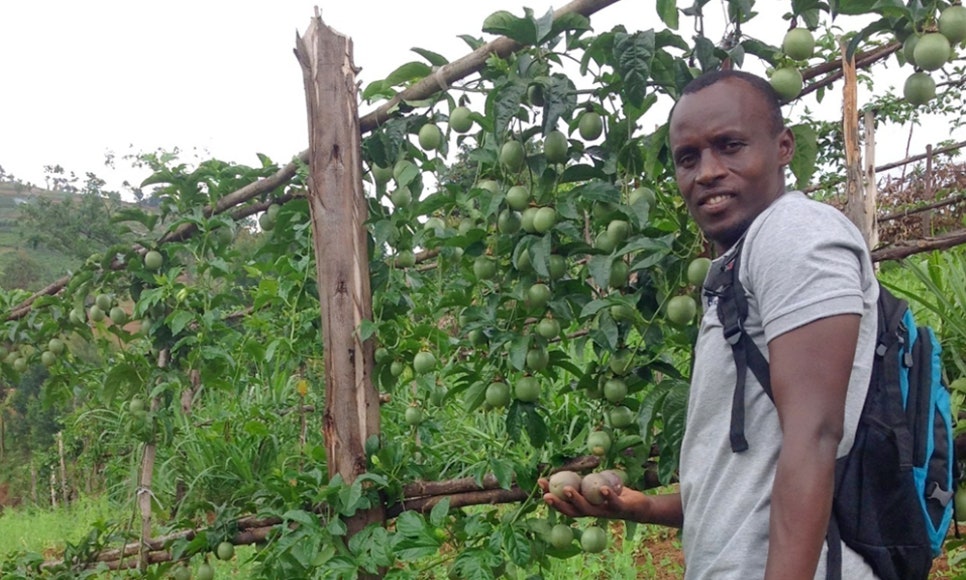
[ With passion fruits at Kigereka farm ]
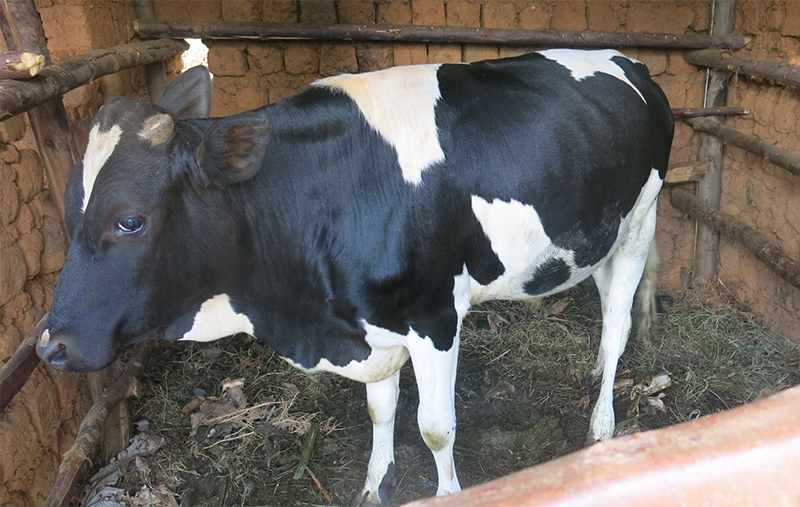
[ A cow which provides natural fertilizer at Kigereka smart farm ]
What kind of crops do you grow?
Staney: We grow bananas and seasonal crops. Banana is resilient to drought and easy to grow. We are harvesting more and more bananas and they are selling steadily. We have 900 banana trees now.
Seasonal crops like wheat, beans, radish, passion fruit and tree tomatoes are selling especially well between May and November.
I heard you helped local residents establish a cooperative union.
Who are the members and how do they divide their earnings?
Staney: Our cooperative union was built not only to help residents save their money but also to help them work at other farms. The name of the union is Banguka, which means fast. (Call us if you need to do something, we will do it fast for you!) The union consists of 120 various local residents including men, women, young people and even grandmothers.
The union members are earning an average of 1,800 to 2,500 francs (1,100 to 1,600 Korean won) a day. Burundi’s average daily pay is around 2,000 francs (1,200 KRW). They save 500 francs (around 310 KRW) every week, and if they do joint work, they save money in their joint account.
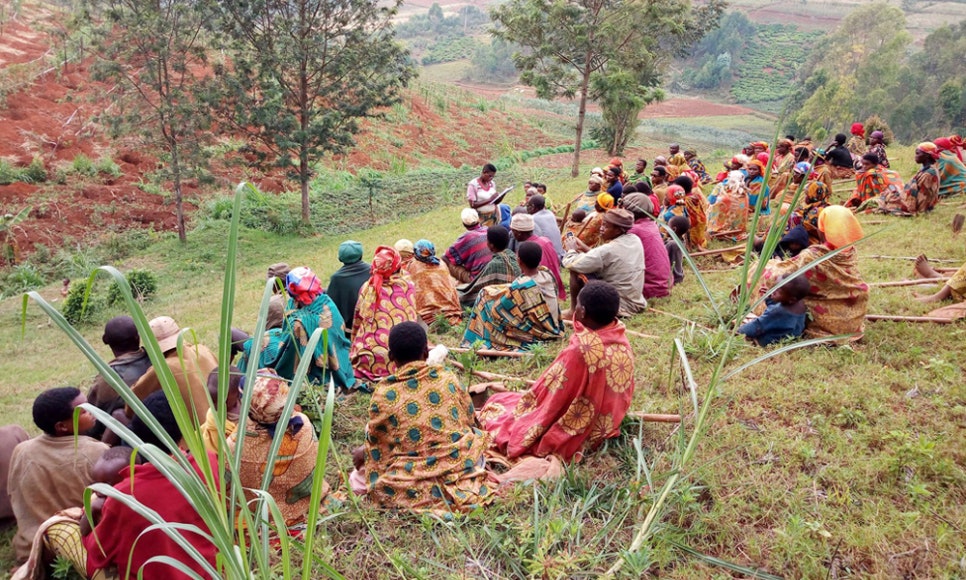
[ Banguka union members are listeningto an agriculture expert about farming techniques ]
What is your future goal?
Staney: We really need to come up with solutions to drought issues. Drought issues in the African continent are getting more and more serious and we were severely damaged during this dry season. There is a river under the farm and I think we need to pump up the water from there.
We will keep sticking to organic farming. One of my biggest goals is to restore the soil. Poor farmers recklessly used low-quality chemical fertilizer, which significantly reduced the productivity of the land. I’m planning to raise around 500 chickens and get natural fertilizer from this chicken farm and increase our earnings. I’m also planning to make a class room where young residents can think about the ways to bring positive changes to their community and start a business.

[ Staney is giving advice to students at the HIL capacity building program for young Rwandans ]
I hope you achieve your goals. Thanks for the interview, Staney.
Staney: Nice talking to you. Thank you for your attention.

